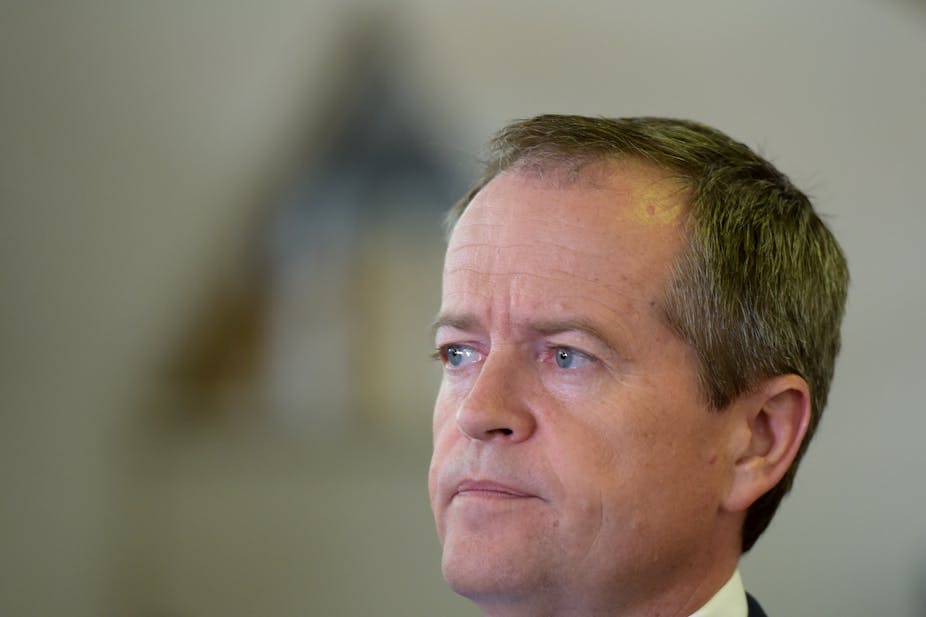Bill Shorten has labelled this the year of ideas but obviously Labor would rather have the overwhelming attention on the Coalition for as long as possible.
The “ideas” put forward so far are limited in number and scope – including dealing with multinationals avoiding tax, countering domestic violence, promoting a republic, building submarines locally.
Obviously Labor at some point will have to step on the accelerator – it has to judge when. If the government shows serious signs of reviving, Shorten won’t be able to delay as long as he might prefer.
But apart from that, the opposition leader is set to confront several tricky issues soon, because Labor’s national conference is coming up in July. A meeting of the 60-member national policy forum – comprising one-third each from caucus, unions, and party branches – will be held late this month to finalise the draft platform.
National conferences lack the bark and bite of years past; nevertheless deft efforts will be needed before and during the conference if it is to play to Shorten’s advantage rather than cause him difficulties.
Leaving aside party reform, three potentially hard items are being discussed in Labor circles in this preparatory period: a push for the recognition of a Palestinian state, whether Labor MPs should be “bound” in a vote on gay marriage, and the ALP’s attitude on boat turnbacks.
The Palestinian matter crosses factional lines and is awkward for Shorten. While there is strong support for recognition, it divides the NSW right and the Victorian right.
With big Muslim populations in its western Sydney seats the NSW right is more pro-Palestinian; those in the Victorian right and especially Shorten are closer to the Israeli lobby.
The conference’s composition is not yet finalised but its overall right-left divide will be close. So, given the left strength and the NSW right’s position, the numbers would seem there for a pro-recognition position.
Last year, former foreign minister Bob Carr moved the successful pro-recognition motion at the NSW state conference. It said that if there was no progress to a two-state solution (which is the present ALP platform) and Israel continued to build and expand settlements “a future Labor government will consult like-minded nations towards recognition of the Palestinian state”.
Carr says this wording “would be a sensible landing place for the whole party”. He told The Conversation this week: “In the recent Israel election campaign Prime Minister Benjamin Netanyahu ruled out a Palestinian state. In that one blow, he undermined any argument against recognising Palestine forthwith.”
There will be push back from the Victorian right, with some arguing that it is nonsense to talk about recognising a state until there are clear borders.
The debate will be influenced by developments between now and the conference in what is a fluid Israeli internal situation.
A successful recognition motion would attract strong reaction from the pro-Israel lobby. In the end, it could be up to the NSW right to get Shorten off the hook. A senior right source predicts the NSW right wouldn’t want to roll him so a compromise motion is likely.
Marriage equality was a big issue at the 2011 conference, which endorsed it but said Labor MPs should have a free vote.
Former Labor senator Louise Pratt, one of Rainbow Labor’s convenors, is in favour of binding MPs. She says the key question is “how the [Labor] leadership will deliver on marriage equality in government. Marriage equality is clearly something that would be expected of a future Labor government.”
Again, the issue is complicated for Labor politically. The Greens’ wins in two inner Sydney seats in the NSW election will focus the minds of some MPs. Gay marriage is a significant issue in Grayndler, held by frontbencher Anthony Albanese, and Sydney, the electorate of deputy leader Tanya Plibersek.
Grayndler could be vulnerable to the Greens, especially if Albanese decided to call it quits (making it certain he’ll be under pressure to recontest). The now Green electorate of Newtown (a new seat) is mostly within Grayndler.
Strengthening the position on gay marriage by making the vote binding would probably be helpful for Labor vis-a-vis the Greens.
But moving away from a conscience vote would be very risky for party unity, and would require a get-out-of-jail card. Some Catholic MPs would not be able to support a bill for gay marriage – but if they voted against in defiance of a “binding” position they would, under Labor rules, be expelled. A decision to bind MPs would need a qualification such as an explicit right to abstain. It would be less complicated for Shorten if the conscience vote stayed intact.
The argument on boats is centred on turnbacks, with concern from party hardheads about the implication for the election of continuing to oppose these. Last year immigration spokesman Richard Marles left the way open to embrace turnbacks under certain conditions; Shorten quickly said the policy hadn’t changed. But there is a search underway for wriggle room.
How he handles these (and other) conference issues will test both Shorten’s management skills and his political beliefs.
Listen to the Politics with Michelle Grattan podcast, with guest, Chris Richardson from Deloitte Access Economics.

